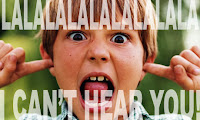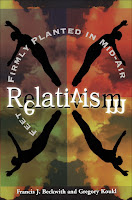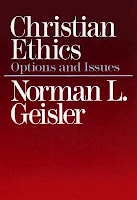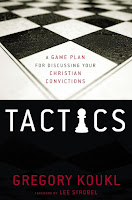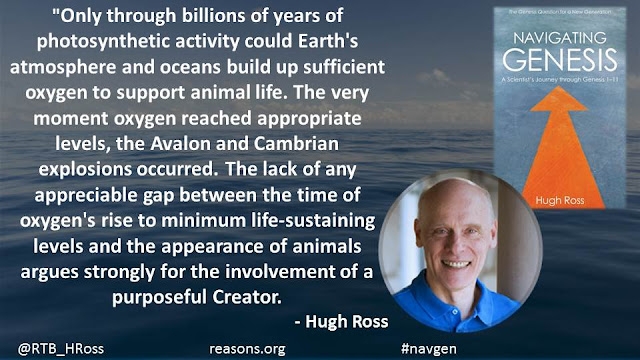God's Existence, Science and Faith, Suffering and Evil, Jesus' Resurrection, and Book Reviews
Why Is The Image of God So Important?
Introduction
Those who follow this blog are aware that I not only defend "mere" Christianity, but I also defend specifics in the Christian worldview. As I have written before, I believe that if a Christian is defending an incorrect detail of their worldview to a skeptic, that skeptic can easily use that incorrect detail as an excuse to reject the entire worldview (even though this is not logically reasonable). Over the last few years of interacting with fellow Christians regarding the details of our worldview, one of the doctrines that are not discussed explicitly very often, but other debates directly affect, is the doctrine of the Image of God. I have noticed that some positions in the other debates imply different views of the Image of God, and these different views of the Image of God can be used to test the positions in the other debates. But before I get into those debates, we need to know why this Judeo-Christian doctrine is so important in the first place.Is Religion the Practice of Avoiding Truth?
Introduction
A month or so ago, I came across an interesting challenge to Christianity. A skeptic told me that religion was an exercise in avoiding truth- a willful delusion. He observed that many Christians (and religious people, in general) tend to believe the claims of their "holy" books over what has been discovered about nature, history, or the very nature of reality. He noticed that many religious people have a precommitment to a particular understanding of the world and no amount of evidence provided will persuade them otherwise. He, as an intellectual, does not want to make this same mistake. In this post, I want to explore the possibility that he is making the same mistake based upon the philosophical foundations of the claim he makes for rejecting religion, and Christianity specifically.
Find other posts related to:
agency, Blind Faith, Evolution, Faith, Free Will, God and Science, Naturalism, Philosophy, Reason, Religion, Science and Faith, Science and the Bible, Skepticism, Useful Fictions
📚 Top 5 Books For Ethics and Politics 🗽
Common Questions and Challenges in Political Discussions
- Who are you to judge someone else?
- Who's ethical system are we to abide by (if anyone's)?
- Isn't it wrong to legislate a specific morality?
- Isn't morality relative to each individual, anyway?
Top 5 Books for Discussing Ethics and Politics
- Relativism: Feet Firmly Planted in Mid-Air- Greg Koukl and Francis Beckwith
- Christian Ethics: Options and Issues- Norman Geisler
- Legislating Morality: Is It Wise, Is It Legal, Is It Possible- Norman Geisler and Frank Turek
- The Case For Life- Scott Klusendorf
- Tactics: A Gameplan for Discussion Your Christian Convictions- Greg Koukl
Why Did I Choose These Books?
Relativism: Feet Firmly Planted in Mid-Air
In any discussion about ethics and politics, a foundation needs to be established. That foundation begins with whether or not morality is objective or relative. If relative, discussions are reduced to mere opinion. If objective, then there is a correct ethic and application in politics to be discovered, and discussion involves the defense of particular views. Greg Koukl and Frank Beckwith take everyday situations and show how relative morality cannot possibly be correct. It is philosophically deep yet written in an easy-to-digest style (its not boring). This book sets the foundation for discussing ethics and politics and helps the reader to defend objective morality in these discussions.
Christian Ethics: Options and Issues
Political discussions do not always take place between two people of completely divergent worldviews; many times they are between two of the same worldview. Many Christians believe different ethical systems that they have derived from the pages of the Bible. These systems result in different applications in everyday life and in politics, so it is important that Christians understand which ethical view makes the most consistent sense of the most biblical data. Norman Geisler examines different ethical views that Christians have proposed in history and compares them to the biblical data; he provides a philosophical critique of the various views; and defends the view he believes is the accurate view. This book made my list because it guides the reader through defending the proper view, which will help defend particular ethical and political views from a logical and biblical perspective.
Legislating Morality: Is It Wise, Is It Legal, Is It Possible
In political discussions it is common to hear an objector say that morality should not be legislated because it is not wise, legal, or even possible. Norman Geisler and Frank Turek take the reader through the philosophical foundations for the founding documents of the United States of America. They also examine the logical fallacies involved with the claims that morality cannot and should not be legislated. They also spend a large portion of the book describing a model for determining what morality should be legislated and what morality should not be legislated. And how this model plays out in various hot political topics is presented. If you engage in or just listen to discussions on politics, this book needs to be read. It will help provide a powerful context for analysis and discussion of ethical and political positions.
The Case For Life
One of the big ethical and political issues of today is the topic of abortion. Discussions of abortion are often emotionally heated and rarely go anywhere because of the usual lack of a persuasive case by either side. Scott Klusendorf takes a commonly accepted source for truth that both sides acknowledge: science. He presents a powerful positive case that the unborn are unique, alive, and human. He scientifically and philosophically critiques the most common and more philosophically rigorous pro-choice arguments. He presents them in a way that is easy to understand and present in everyday discussions. This book is indispensable for the pro-life defender to present a scientifically focused case to those who value the findings of the scientific disciplines.
Tactics: A Gameplan for Discussion Your Christian Convictions
Finally, just possessing all the knowledge from the above books will not necessarily make conversations on ethics and politics productive. The person who wishes to persuade others in conversation must present their case in a winsome, respectful, and calm manner. Greg Koukl's book "Tactics" takes the reader through several different principles and real-life conversations to show how to intentionally discuss controversial issues in a non-combative posture. While this book is the last one listed, it could easily be the first one on the list that I recommend you read. You will be able to apply its principles throughout the time that you are reading through the other books and the books in any other Top 5 list.
Related Posts: Conducting Controversial Conversations
Related Posts: Ethics and Politics
Hugh Ross: Purposeful Cambrian Explosion Argues for God's Existence
Introduction
I love watching illusionists. They perform feats that seem to defy the very laws of physics- cutting people in half (who live to tell about it), disappearing and reappearing, escapes, and many, many others. It is interesting that we see all these things "magically" happen, but we know that they could not happen unless the illusionist was involved. The illusionist has a purpose for making something "appear" or "disappear." They wish to impress and entertain their audience. They usually pick an object with a certain level of complexity that is easily recognizable- a ball, a playing card, or dove or rabbit for instance. They carefully prepare the environment for the illusion; often the audience is a witness to this setup. Now, if any of those objects just appeared on stage (or in the street for that matter), we would not think for a moment that it "just happened" with no explanation. We would immediately look for a cause, a purposeful agent who designed and orchestrated the stunt.Appearing Acts in Nature
The Cambrian and Avalon explosions are quite analogous to the appearance of an object by an illusionist. These acts were complete with the setup of the environment and everything. In his book "Navigating Genesis" Dr. Hugh Ross explains what has been discovered in nature and how it argues for a purposeful agent behind the setup and execution of the appearances:"Only through billions of years of photosynthetic activity could Earth's atmosphere and oceans build up sufficient oxygen to support animal life. The very moment oxygen reached appropriate levels, the Avalon and Cambrian explosions occurred. The lack of any appreciable gap between the time of oxygen's rise to minimum life-sustaining levels and the appearance of animals argues strongly for the involvement of a purposeful Creator."
Book Review: Where the Conflict Really Lies
Introduction
This review has been a long time coming. I first heard of Alvin Plantinga and his "evolutionary argument against naturalism" several years ago. I was impressed by the original paper, and when I heard that he wrote a whole book on it, I was quite excited. As a defender of the Christian worldview, I constantly come across skeptics who believe that there is a glaring conflict between science and faith. I have defended the complete compatibility of modern science with the claims of Christianity using the sciences and some philosophy. My reading "Where the Conflict Really Lies" by Alvin Plantinga is an attempt to expand my philosophical defense. Is it successful? This review will provide a chapter-by-chapter summary of the book that will conclude with my thoughts.Part 1: Alleged Conflict
Chapter 1: Evolution and Christian Belief (1)
Plantinga begins by explaining that over the centuries many people have claimed there is conflict between science and Christianity. The only thing that has changed is the source of the claimed conflict- biology not astronomy. He explains it is important to define our terms in order to properly identify any conflict. He uses common affirmations of the historic Christian creeds regarding creation as a source for the minimum necessary claims of Christianity: God is the creator. As for science, he takes the current scientific theory and breaks it into its mere components: an ancient earth, rise in complexity of life over time, descent with modification, common ancestry, naturalistic mechanisms, and naturalistic origin of life. He explains that conflict has been alleged between the first scientific thesis (an ancient earth) and the interpretation of the Bible by some Christians, but since age is not part of the Christian creeds, he concludes that the conflict is merely superficial and not actual.Richard Dawkins is one scientist who also alleges great conflict between science and the Bible. Plantinga addresses Dawkins' argument that modern evolutionary theory has revealed a universe without design. He shows that while Dawkins may be able to envision a general naturalistic mechanism to get complex systems, he has not proposed a detailed map from the simple to the complex, nor has he provided any scientific evidence of the details of a mechanism that would produce the specific points on the map. Plantinga also addresses Dawkins' appeals to probability and the claim that God, Himself, would require a designer. He concludes that Dawkins has not demonstrated that evolution (even if it is correct) can take place independent of an intelligent agent guiding the process.
Norman Geisler: Christians Must Build a Positive Case For Creation
Introduction
As a defender of the Christian worldview it is important for me to show how other worldviews fall short of reality. In my discussions regarding the specifics of the biblical model for the origins of the universe, life, and humanity, I do this quite a bit. However, as Norman Geisler emphasizes in his book "Origin Science: A Proposal for the Creation/Evolution Controversy," that is not sufficient:"If Creationist views are to gain scientific credibility then they must follow the principles of origin science and build a positive case for a primary cause, rather than relying on the ineffective means of pointing out flaws in various evolutionary hypotheses."
Find other posts related to:
Apologetics, Arguments, Creation, Norm Geisler, Norm Geisler Quotes, Science, Science and Faith, Science and the Bible, Worldview
Providing The Case Against And Solutions For Abortion
Introduction
As I have defended the truth of the Christian worldview over the last decade or so, I have been investigating the finer details of the Christian worldview also. It is not enough to defend a "mere" Christianity, for many skeptics see contradictions between reality and what many Christians believe. We must also investigate and defend these theologically nuanced portions of the Christian faith (for more details on the importance of investigating and defending the details, see my post "Internal Debates and Apologetics").
One the big internal debates that skeptics see as internally inconsistent is the area of ethics and morality. But not just having the proper view of morality, but seeing it lived out in the Christian's life (the issue of hypocrisy in the Church). An accurate ethical system and the consistent application of it are just as apologetically important as defending the essential truths of the Christian worldview. But this goes beyond just those who are intentional with philosophically and scientifically defending the faith. This affects every Christian's evangelical witness. This is why I have been recently addressing defending the correct ethical system (see my review of "Christian Ethics: Options and Issues" by Norm Geisler) and how it should be applied in our lives (particularly in the area of politics; see my review of "Legislating Morality" by Geisler and Turek and my post "How Should Christians Vote In Political Elections"). My attention has been more acutely focused on our moral duty to protect life.
Find other posts related to:
abortion, Politics, Pro-Life, Science, Scott Klusendorf
Book Review: Cold-Case Christianity For Kids
Introduction
Several years ago cold-case homicide detective J. Warner Wallace wrote the book Cold-Case Christianity. When Wallace first read the gospels, as an atheist, he noticed that they read like eye-witness accounts that he was used to analyzing everyday. He decided to conduct an investigation of Jesus' resurrection just like a cold-case. Cold-Case Christianity takes the reader through his investigation and encourages the reader to be the "jury" to evaluate the evidence. You can read my full review of it here: Book Review: Cold-Case Christianity.That book has been quite popular and has helped numerous people to see the evidence for the truth of Christianity. Because of that, Wallace and his wife decided to take the content and adapt it for a younger audience. The result is the book Cold-Case Christianity for Kids.
Find other posts related to:
Children, history, Investigation, J. Warner Wallace, Jesus Christ, Kids, Resurrection
Subscribe to:
Comments (Atom)



